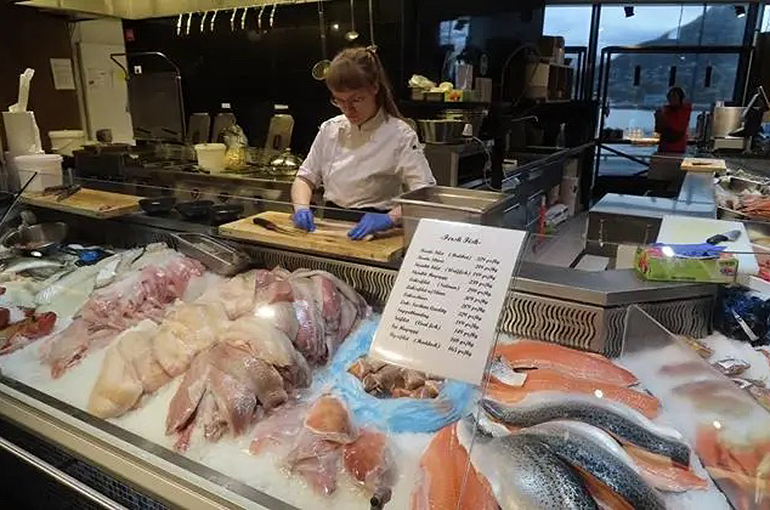 China Overtakes Japan & South Korea as No. 1 Asian Market for Norwegian Salmon
China Overtakes Japan & South Korea as No. 1 Asian Market for Norwegian Salmon(Yicai) Oct. 25 -- China has surpassed Japan and South Korea as the biggest destination for chilled Norwegian salmon in Asia for the first time ever this year.
From January to August, Norway exported NOK5.6 billion (USD501.5 million) worth of marine products to the Chinese market, up by 10 percent from a year ago, Yicai learned from the Norwegian Seafood Council. In the upcoming sixth China International Imports Expo in Shanghai, the Scandinavian country aims to further advance in the Chinese market through exchanges and cooperation.
China's seafood imports are changing since the country banned imports of marine products from Japan after the latter Asian nation started releasing nuclear-contaminated wastewater from the damaged Fukushima nuclear plant in August.
Norway is also reacting to Japan's moves. The Northern European country has a complete traceability system to manage the industrial chain of marine exports, Anne Mæland, senior adviser of the Norwegian Food Safety Authority, said to Yicai in a recent interview. Norway is the first country to use such a comprehensive system to manage the whole production system and processing of marine products.
Moreover, the Norwegian Radiation and Nuclear Safety Authority is monitoring levels of radioactive substances in seafood in collaboration with the Norwegian Institute of Marine Research. The results confirm that the concentration of radioactive cesium in Norwegian seafood is consistently low.
However, Norway's monitoring does not focus on tritium, a radioactive substance present in the nuclear-contaminated wastewater discharge from Fukushima, but pays attention to other substances most relevant in food. Still, the nuclear safety bureau confirms that the release of Japanese wastewater will not be noticeable in Norway. The two nations are far apart so the concentration of tritium will be extremely diluted.
Mæland responded to a question about speculation of whether Norway ships salmon from other countries to China. No such incident has ever been detected as the food safety body makes random checks across the whole industry chain at different times and in different locations, she said.
Editors: Liao Shumin, Emmi Laine